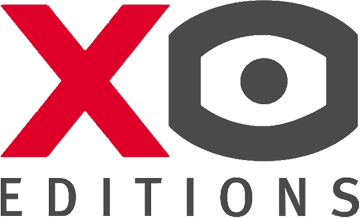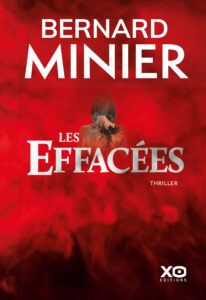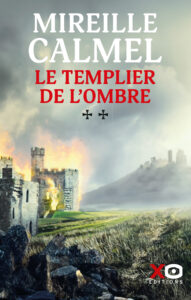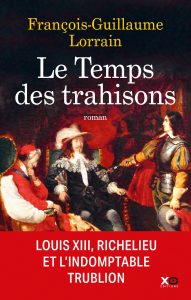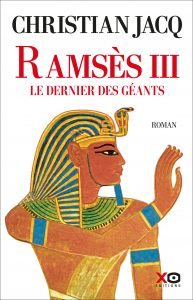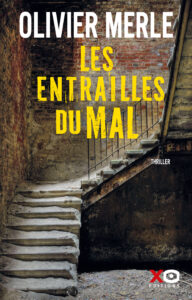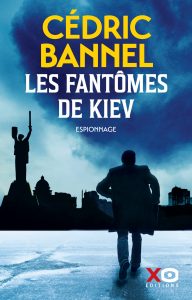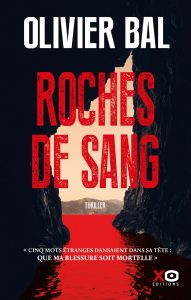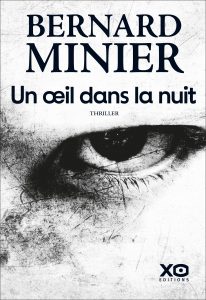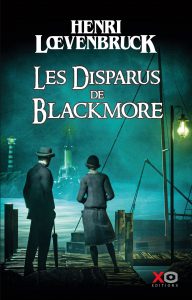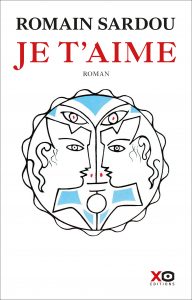Author's interview
You are director of a consulting firm, and you have advised major industrial groups, as well as investment funds. Is this the motivation behind your book?
Not exclusively. For over twenty years now, I’ve been observing the business world from the inside, and obviously this experience has contributed to the building blocks I built this book upon, though the book is entirely fiction. However, I am also an avid reader, and a keen observer of economic current affairs, which are constantly filled with incredible stories, with subtle, and not so subtle, signals of a world undergoing constant change. I compiled considerable research for this book. My other building block? I collect press clippings. In my view, reality often surpasses fiction…
Why did you choose to novelize this dive into the world of financial capitalism and its deadly mechanisms?
Precisely because these aren’t just abstract mechanisms… Behind our economic history, are individuals, with emotions, wounds and fears, which have their roots in childhood… I didn’t want to write just another essay to add to the excellent ones already out there, about the credit crunch and globalization. In fact, among these books, it’s the novels that I find the most interesting. I think the best way to reach people is by telling a story: by doing so, we get closer to the truth. Fiction is also a fantastic way of exploring the future and its possibilities, of extending trends. I start from the premise that money rules the world, across and over nations. AAA is an adventure novel that explores the question, where does that path lead?
In your novel, the powerful men of Western society unite, over the heads of government, to create an unheard of political and financial power. Is this an upside down view of the struggle between the classes?
Yes, to a certain extent. I wanted to write a book about the ever more complicated relationship between the rich, who are doing very well for themselves, and Western democracies, who are not. Anyone can see that, in the West’s stagnation, the rich are doing great for themselves: their numbers keep increasing, and they hold an increasing share of the world’s riches. One tenth of a percent of the world’s population holds 40,000 million dollars of capital; in the United States, 4/5ths of the rise in income over the last 30 years has profited 1% of the richest people, who hold a third of the country’s wealth. It could even be said that the credit crunch is advantageous for them: the luxury industry has never been so prosperous. The rich are doing great, but they’re “not so great” since they aren’t perceived as well as they could be.
Robert Guest, editor of the Economist, wrote a few months ago, that “my advice to the rich in 2011 is, hide!” More and more often, the finger of responsibility is pointed at them, as those who are profiting from globalization, from financial speculation, the increase in inequality… They are seen as cheaters, and tax evaders. They’re accused of weakening democracy with their lobbying and of controlling the media. Even when they show themselves to be philanthropists, certain people see it as a suspicious and anti-democratic attempt at privatizing charity work.
But this resentment is mutual: the feud between the rich and Western governments works both ways. They can feel the general public’s hostility, and find it deplorable that growth isn’t what it used to be, and therefore are investing less and less in the public sector. Especially since this sector is in such financial dire straits, they know that pressure from revenue and customs will intensify. It is thus a tense and complicated relationship.
Is that where Adrian Assanto comes in?
Yes. Adrian understands these troubles, and will generate, thanks to his social network called Triple A, a gigantic network of the rich and powerful, a sort of Facebook for millionaires, which will progressively become a makeshift nation, and a political and financial power. The coming out party takes place in January 2012: Triple A launches an invitation to tender to Western States, to select a country where a new society can be founded and created. Operation “Sanctuary” is a brand new concept: never has there been a human community independent of all nations, that raises itself above other governments, and creates a state of competition between them, while trying to buy a country. AAA is the unfolding story of what happens next.
This call for bids is Machiavellian in its execution…
Indeed, it appears to preserve a front of liberalism and democracy: no one is obliged to answer. And yet, European democracies are up against the wall: either they accept the conditions, thus assuring themselves longterm prosperity, or they reject this odious assault on the concept of democracy and run the risk of being left behind by the rich and powerful and their ever growing capital. Since certain struggling countries will definitely give in to the temptation…
Do you think this scenario would be possible today?
Are we so far away from it? With this novel, I wanted to explore how western capitalism, slowly, insidiously got to this point. It is hard to argue with the evident decrease of power held by nations in the face of globalization and the power of money. Money is power, and means independence from countries and laws, with its lobbies, tax havens, financial markets, and even extremely rich humanitarian foundations that are privatizing even the public sector. Where will this logic lead us? To what extent is democracy flexible in the face of money? Maybe I wrote this story as a risk assessment of such a transgression… So that, should it ever occur, we could be ready. But in truth, we won’t know if it’s pure fiction until January 2012…
Are there any new changes, today more so than yesterday, which could lead to this break?
Yes. Even if the progression which I describe was set in motion decades ago, I think the “before” and “after” distinction can be traced back to 2008. The explosion of poverty in the Western world, unabated unemployment, the unreasonable amount of job terminations announced in the last few months by very lucrative businesses, the level of debt contracted by various States, the sizeable deficits, fortunes that escape taxation in tax-free havens or in charitable foundations, the immeasurable power of hedge funds, which are spreading panic across markets, like bullies in a school playground…all this is brand new, yes, just like the apparent acceptance of public opinion of this weakening of Western civilization, and the all powerfulness of markets. Everything can be bought these days, so why not an entire country?
In your opinion, are social networks capable of bringing about such phenomena?
The growing power of social networks fascinates me. More than a billion people are using them already. We have most recently seen their importance in the revolutions taking place in the Arab world. And yet, we are only at the dawn of the era of social networking. A few years ago, I was struck by the story of the election of a president of Facebook. It has often been said that if Facebook were a country, it would be the 3rd most populated country in the world, and then came that election. It made us smile at the time, the story collapsed like a deflated balloon, but at the back of my mind stayed this intriguing idea: what if a social network got organized, and became a virtual almost-nation? And naturally, I came upon the question central to this book: “what if the rich became a nation thanks to a social network?”
Who is Adrian really? While he is their leader, he seems strangely hard on the rich and powerful of the West…
Adrian is just like them in many respects, a rich financier, an investor, but his origins make him stand out. He grew up in Eastern Germany, in the middle of the Cold War, in poverty; hatred of the communists killed his father. He made his own fortune, which hasn’t prevented him, however, from leveling a clear gaze at the part played by the elite in decline of the West. In his eyes, the rich have taken advantage of globalization and the world of finance at the detriment of their people. The world they have created is headed for decline, and something must be done. Adrian’s irruption will be a shock to the system, an epiphany. He shakes up all the certainties, and the fixed smiles. His project, messianic in its ambition, sets out to reverse the destructive logic of the rich and save the West by defending its values in one fell swoop.
But his mad project will encounter several obstacles…
Yes, Adrian will encounter determined opposition from Paul, a Frenchman, passionate about Europe and democracy, who sees in this operation the last act of a logic of mercantilism, a raging plutocracy, an attempted violation of democracy by the world of money. The other obstacle, more dangerous, is another financial conspiracy, of never seen before proportions, concocted by the Chinese, in association with Wall Street, aimed at Europe.
The invitation to tender only includes European nations. Why Europe?
That is the first question that journalists will ask during the press conference in Singapore. But my answer is a little different from Adrian’s. Why Europe? Because this book is passionately European. Adrian and Paul have one thing in common: their love of Europe and the Mediterranean. It’s a rallying cry for the defense of Europe, besieged by the financial markets, brought down to its knees by debt, and more fragile than ever, defenseless against globalization and the currency wars. By making Europe the target of a double conspiracy, I wanted to show that our region of the world is envied the world over for its many resources that we seem to be the only ones taking for granted. Europe is the number one economy in the world, with the highest savings and lowest inflation; our budgetary problems are smaller than those of the USA, and democracy and the welfare State work best here, despite whatever else can be said about them. Maybe the time has come to react, and come together to preserve what we have.
And it all starts in Athens. Greece is very present in your book. Why?
It is everywhere, in our history and our current affairs. Malraux used to say that “a secret Greece rests in the heart of all Western men”. For Adrian, it is even more personal than that: he was conceived in Athens, where his parents met and fell in love, where his father died, where his grandfather even claimed to be the descendant of a Greek tyrant from Agrigente… Greece is the birthplace of Europe, and of democracy. There is a painful irony to the fact that it is in Athens, where it all began, that the financial tragedy of Europe will culminate in what is possibly the end of it all. How can we not find frightening the symbolism of witnessing the eruption of our financial crisis in the place whose philosophy of setting limits warns us against hubris and excess leading inevitably to a fall? Accountants today suggest that we should leave Greece to her fate, as if she were not the heart and soul of Europe. Let’s remember that exactly 2500 years ago, Athenians were defending their brand new invention, democracy, and triumphing over their invaders, despite inferiority of numbers, in Marathon and Salamina. What would Europe look like today without the bravery they gave us through freedom? Camus answers this question, and let me quote him: “Europe would be vile without the Greeks.”
Let’s talk about your characters. In your gallery of portraits, you don’t handle the rich with kid gloves…
Everything in this book is about money, and the way it affects behaviour and ideas. AAA is n adventure novel, in which we discover that financial capitalism has become a game, where live bullets are fired. With Barry, the ruthless banker from Wall Street, Reda, the financier originally from the Gulf, specialist of hostile raids and company breakdown, the beautiful Sophie, a high-flying spy, addicted to luxury, or even Liscio, the Sicilian godfather, it is a journey to the heart of a greedy and cynical business world. The novel shows for example how to prepare a hostile takeover bid, and how such a takeover can appear to some as a hunt, a chase, a sport high in adrenalin, and I wanted to approach those hunters the way one profiles serial killers. That being said, without going back to Adrian, there are more positive characters also present in the book. Paul to start with, who embodies the moral and European face of the opposition to Operation Sanctuary. John Aden, the flamboyant hedge funder, who, while wealthy, is also in his own way enlightened; a moneymaker who loves life, people, the art of living and European refinement. It makes him better, more open… Bernard Aubigny is an industry leader who personifies a more positive version of capitalism that helps create value. Finally, we sense in Sophie the possibility of redemption, and that Paul’s scheme might just work: perhaps the love that Sophie and Adrian share that is the best antidote for Operation Sanctuary…
On the flip side, AAA shows a terrible view of developing countries. Are they such a threat?
There’s no demonization of developing countries. The “Eurostuff” conspiracy for example, comes just as much from the banks of Wall Street to their allies of circumstance, the Chinese. In the same way, one of my characters, Vageesh Patel, embodies a dynamic, democratic and open India, a reassuring face, even if it is one of globalization. We can only rejoice that, thanks to globalization, millions of men and women across the world are emerging from poverty. However, we can be disappointed that millions of citizens of the Western hemisphere are falling into it… What is terrible for the Western world are certain effects of unregulated globalization. We must understand that it is exactly as if we brought back the bosses and workers from 1890 to today’s world… Once again, where can this lead? Adrian simply adopts the point of view of Europeans and Americans. As for the Chinese, let’s not naively believe their unconditional support. They are interested in our factories, our infrastructure, our businesses, and they are playing a level headed and intelligent game.
You judge Wall Street, and the world of finance in general, very harshly. Are they just as guilty of the ailments that plague the West?
The responsibility of American hedge funds and investment banks in the crises and economic chaos that plague the world is already the subject of many books. Americans consider Wall Street bankers to be delinquents. The Tea Party movement I particular is pushing this agenda. The harshest critics are actually on the inside: Michael Lewis (The Big Short) used to be a trader, Gillian Tett (Fool’s Gold) is editor of the Financial Times, not to mention the famous “Goodbye Letter to Wall Street” from a brilliant hedge funder who took his final bow. Market finance is an all powerful industry, with unsupervised freedom. Everyone knows for example that derived products, and securitization, have allowed credit risks to soar, and hide in the blind spots of regulation.
Greenspan admitted in 2008 that they were wrong to oppose CDS regulation (publicly declared “useless” in 1998, a few months before the LTCM affair). But the regulation of derived credits hasn’t progressed since. And once again, a horde of hedge funds is trying to break Europe…
Your novel seems to call for a sequel. Are you considering it?
The stormy history of the relationship between the rich and powerful and democracy is moving forward, but it isn’t over. If we are to go by my book, Operation Sanctuary, the invitation to tender to Western States, will soon be on the table. For now, Adrian is at sea, on board his yacht somewhere in the Indian Ocean, sailing towards Singapore, where a press conference is set to change the world. Let’s therefore wait until January 2012. Will the sequel be fiction? Or will reality surpass it? My readers will be ready, in any case.
Why did you decide to take a pen name?
To draw a clear line between my professional life and my work as an author. To protect that voice which is made its own by writing, that other “Me”. And so I can remain Mr. Everyman outside of my books.
